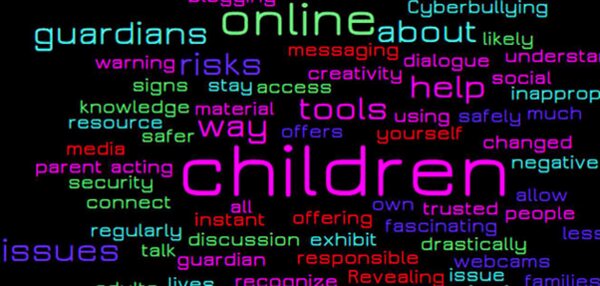Digital Awareness for Kids: Nonprofit Programs Promoting Online Safety
The more technology advances, the more the digital space becomes dangerous, especially for unsuspecting kids and teenagers. Social media apps and other online platforms are obviously supposed to be fun, educative, and informative. It is how we get entertainment, news, and trends, and connect with other people across the world.
However, it has also made phishing, scams, cyber predators, and cyberbullying easy. That is why cyber security for nonprofit programs are stepping up to address and promote digital awareness for kids and online safety.
Cybersecurity for Kids – Internet Dangers
We are living in a digital era where technology has taken over and continues to do so with every advancement and new development. Kids nowadays are being born and growing up with technology being a significant part of their lives. Therefore, digital literacy has never been more important.
From a small age, children can use different technologies like phones, tablets, and even laptops, which exposes them to the internet early and makes them vulnerable to online threats. Some of these poised dangers include;
Cyberbullying
This is one of the greatest cybersecurity concerns for kids and teens. Statistics report at least 50% of kids and teens have social anxiety due to cyberbullying, with a majority of them witnessing cyberbullying acts online.
This is mostly a concern to kids on social media and online games where they can easily be ridiculed and attacked by strangers online. The best way to protect kids from cyberbullying is by sitting them down and having conversations about it.
Discuss their activities online and what could possibly happen if they are not careful. It is also important that you teach them how to protect themselves against bullies and stand up to them.
Cyber Predators
We always teach our kids about stranger danger in real life; do not talk to strangers, do not go with strangers, do not accept sweets and other things from strangers, and so on. However, many times, we forget to give our kids the same education about online predators.
Predators know that kids hang out online more and have therefore taken advantage of it and made the internet their hunting ground. Internet stalkers can take advantage of unsupervised children, luring them into dangerous personal meetings.
Phishing
A lot of us have been victims of phishing at some point in our lives. However, at least more adults should know better now, leaving kids and teenagers a primary target for these fraudsters and scammers.
How they work is that they disguise themselves as reputable entities/ companies/ organizations, and try to trick people into giving their sensitive and personal information such as usernames and passwords, through malicious emails and messages.
Because the messages and emails can often appear to be from legit people, like a family member, or reputable companies, it makes it difficult for kids to detect the scam, making them easily fall into the trap.
It is important to teach your kids to refrain from clicking suspicious links on messages and emails, no matter how legit they seem, and to always seek an adult’s guidance in case these messages pop up on their devices and they are not sure what to do.
The Role of Nonprofits in Promoting Digital Awareness and Online Safety for Kids and Cybersecurity for Nonprofits
Nonprofit organizations that are dedicated to children’s online safety understand how scammers have become even more cunning, and how important it is to tighten cybersecurity for nonprofits and online safety for kids.
These organizations work tirelessly to raise awareness about the potential risks associated with online activities and provide resources and support to children and their caregivers to ensure internet safety.
Here are some ways nonprofits are promoting digital awareness and safety for kids;
Education and Awareness
Nonprofits are now collaborating with schools and other educational institutions to raise awareness about cyber-attacks, cyber threats, cyberbullying, and other cybersecurity concerns through various programs and initiatives.
They provide workshops and training about digital literacy and safety, which educate children and teenagers on how to recognize threats online, stay safe on the internet, and stand up for themselves to bullies and predators.
They also emphasize the importance of parental monitoring, and educating parents and caregivers on how to guide their kids on online activities.
Tools and Resources
It is important that nonprofits provide the tools and resources needed to keep children and parents in the know about cybersecurity. These tools may include mobile applications, websites, online forums with live Q&As, and more.
These resources should cover topics such as privacy settings, online etiquette, and recognizing and reporting cyberbullying, to not only promote online safety for children but also enhance cyber security for nonprofits.
Support and Helplines
Providing support and helplines is another important way for nonprofits to foster online security. These are safe havens where children and their parents or caregivers can seek assistance in case of online safety issues.
They can report incidents of cyberbullying, cyber attacks, and any other cyber security issues, and get the necessary support and help they need.
Online Safety Rules for Kids

In fostering cybersecurity for nonprofits and online safety for kids and teenagers, there are some online safety rules to help kids stay safe on social media, gaming sites, and other online platforms and forums where they are most likely to experience cyber insecurities. Here are some tips;
Never share personal informationTeach your kids what personal information is and how to keep this information private. This may include their full names, physical addresses, school names, email addresses, phone numbers, and any other piece of information that may be used to identify them or against them, online or offline.
Always use a strong password – It is important for kids to understand that passwords and usernames are everything when it comes to online safety. It is one of the most important pieces of information that could give online predators access to their lives. Create strong and unique passwords and avoid easy-to-guess passwords like birthday dates and names.
Always keep social media accounts private – Make sure your kids’ social profiles are private so that not everybody can have access to their information. Only approved friends and family should be able to see their posts. Also, check their friends and follow requests, and teach them how to do some due diligence before accepting random strangers into their space.
Cyberbullying awareness – Children mostly fall prey to cyberbullying and online attacks because they are young, naive, and vulnerable. Predators and online bullies take advantage of their innocence and lack of knowledge and information to make them their victims. Cybersecurity education is important to ensure kids know what cyberbullying is and how to handle it. Encourage them to talk to an adult if they experience or witness any of it.
Use parental controls – Adult monitoring is the only sure way to protect kids online. Ensure you have access to your kids’ devices to monitor their phones and online activities. Check the social media apps they are using, who they are interacting with online, what they are posting, and pretty much every other little detail.
Note that being a spy is not necessary. Let them know that you will be monitoring their online activities and make them understand why it is necessary. Communication is key.
Conclusion
It is the duty of the community at large to ensure that kids are well-protected and that they are safe, both online and offline. Nonprofit programs that promote online safety for kids and cybersecurity for nonprofits are a great way to spread digital awareness.
These organizations provide the necessary education, tools, and resources, and offer support and helplines that help empower children to make informed decisions and protect themselves online.




